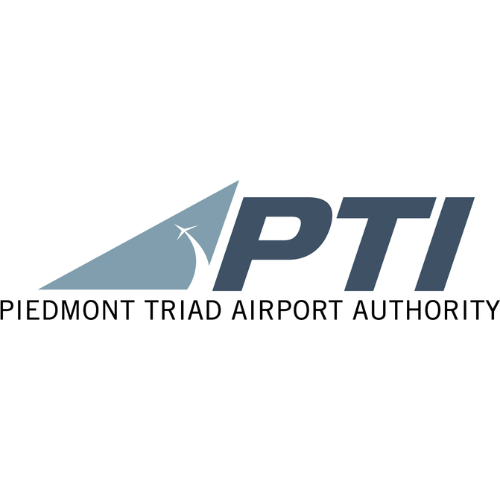‘Influencer’ and ‘advocate’ have been buzzwords in brand marketing for many years. Both terms refer to third parties who endorse products and build brand visibility and credibility, typically via social media channels.
In 2016 influencers were the idols of the millennial generation; young, photogenic bloggers in the worlds of fashion, beauty and travel, tapping into their position as social media ‘stars’ to attract audiences who wanted to emulate their lifestyle. Their posts were the ultimate in user-generated content.
Fast-forward to 2019 and influencers have long been losing their attraction. They increasingly mirror the messages of the brands they represent. The fact is, influencers no longer offer original, authentic content, and so the shine has gone from the way they, and the brands that employ them, are perceived.
At the same time, influencers are an important part of marketing strategy. Word-of-mouth and advertising reach are both vitally important to the success of a campaign.
So how should marketers move forward in a digital landscape where customers are at saturation point with social media and no longer trust third-party product recommendations?
Influencers vs Advocates
It’s important to understand that whilst both influencers and advocates have the power to make or break a brand, the terms, and indeed the roles they play are not as interchangeable as they first appear.
Influencers are people who are active on social media and who have capacity to affect another person’s behaviour based on what they post. These people are often celebrities or other individuals who already have a sizeable and loyal following. They attract people who admire them and want to emulate their lifestyle, or connect with them by enjoying the same products and experiences.
Advocates are customers who publicly support and endorse a product or service based on its quality and their positive experience and enjoyment of it. They do this without the need for incentives. These people vocalise their appreciation of a brand or product over social media with the intention of recommending that other people buy into it or give it a try.
Whilst influencers are motivated by increasing the size of their own audience, becoming more famous, making money and being given more luxury freebies, advocates promote brands selflessly with the sole intention of helping friends to find high-quality products, and the feel-good factor created by sharing news of a successful purchase or booking.
Understanding the distinction between these two groups will allow you to develop genuine and meaningful relationships with your brand advocates.
The fall of the influencer
In recent years, consumers have begun to fall out of love with influencers. The victims of their own success, social media influencers are no longer seen as authentic, promoting brands they like and giving honest product reviews. ‘Influencer’ has become an aspirational career, and as a result the content produced by these people just represents another marketing channel, another tool used to sell goods and services and to target audiences. As social media influencers made the transition from enthusiastic amateur to professional content producer, they lost customer trust.
Advocates, on the other hand, continue to have a powerful effect on brand growth, remaining valuable to marketers, especially in the travel sector.
Why airport advocates are more valuable than brand influencers
A study by Forrester Research found that only 18% of consumers trust influencers and their opinions, whilst 92% of consumers trust brand advocates (Nielsen). The figures are clear, but why does this matter and what does it mean for airport marketers?
Advocates don’t expect anything in return
Influencers have long been attractive to marketers because of the size of their following. An off-the-peg audience made up of a specific, targetable, engaged demographic is a marketer’s dream, but this comes at a price: Influencers always ask for something in return. Whilst that might not be an issue for businesses in an industry like beauty where items are small and relatively inexpensive, for travel, where an endorsement costs flights or hotel rooms, it’s important to know the return will be worth it. The bigger the investment, the more you need to look at ROI.
The benefit of advocates is that they need no incentive, they’ve already paid for the product, and a satisfying experience is all they require to start advocating. Besides which, when so many passengers carry a smartphone or other mobile device through the airport, giving them instant access to social media platforms, positive experiences will produce positive user-generated content. And positive user-generated content equates to free advertising.
Importantly, it doesn’t take huge investment for an airport to deliver the positive customer experience required for advocacy. Rezcomm’s ecommerce platform requires minimal resources from the airport to set up, and it immediately gives the airport the tools it needs to start creating advocates (and revenue). It is developed in collaboration with (and trusted by) airports, and moves with advances in technology to meet customer expectation.
People trust their friends
Although advocates will have a much smaller audience than influencers, there’s a lot more built-in trust, and this is more valuable for converting a recommendation into a sale. The advice of friends or family members features heavily in buying decisions, with 83% of people saying word-of-mouth influences their choices. Personal recommendations have the potential to trigger a ‘snowball’ effect as people who generate the most trust share and comment on social media. According to McKinsey, recommendations like this are responsible for up to 50% of all purchase decisions. The fact is, if your product is good enough to excite its users into advocacy, it will start selling itself.
Influencers are unreliable
Whilst influencers may still offer some benefit to marketers, their posts will never be 100% genuine as long as there’s a trade of free products for endorsement. In recent years these ‘managed’ endorsements have become more transparent and consumers see through sponsored posts, viewing them as just more advertising. There have been cases, for example, of celebrities endorsing smartphones and tablets, only for their social media posts to reveal that the messages were sent from rival devices. When something like this happens, the investment in influencer naturally backfires, damaging consumer trust in both brand and influencer.
Advocates are for life
Influencers will endorse your product while they are getting something for free, but there’s little to stop them from promoting a rival product once your contract has ended. They’re basically fair weather friends.
Advocates, on the other hand, will always be there for you, as long as you don’t let them down, and this puts the airport in control when it comes to optimising customer relationships and delivering a great customer experience.
By providing a top quality, personalised and seamless CX, the airport will build up a body of passengers who will return over and over again.
Advocates are more sustainable
The biggest challenge in building a community of advocates lies in finding them in the first place. However, this work is already done during the process of customer acquisition, and in winning mailing-list subscriptions, capturing data through direct flight and car park bookings and devising automated email workflows. Your advocates will come from your current and future customers.
Once you have built a strong customer base and encouraged people to act as advocates, it is easy to sustain their advocacy. All you have to do is to provide a quality, personalised service.
Unlike influencers, whose interest and output requires more investment to maintain, advocates will be there for you for as long as the product or service meets or exceeds their expectations. The figures prove this: When it comes to customer value, advocates are worth five times more than regular consumers.
Harnessing technology to win brand advocates
As technology advances, customer expectation increases. Rather than presenting a challenge, the connected customer offers a world of opportunity. By harnessing customer data, airports can deliver exceptional customer service, exceeding passenger expectations and therefore winning loyalty and advocacy.
An industry-specific, tailored ecommerce solution like Rezcomm gives regional airports a distinct advantage, allowing them to offer a customer experience that competes with larger hubs, but with the added geographical convenience of being ‘local’.
Rezcomm’s ecommerce solution makes it possible for customers to discover a wider range of destinations and even manage their whole holiday online via an airport-branded storefront, without leaving the airport website.
By using CRM and email marketing automation, even the smallest regional airport can build relationships with customers, maintain advocacy relationships, reward loyalty with targeted, special offers, and continually build better experiences through the use of advanced data analytics. The technology is also valuable in creating the idea of the airport as a destination, attracting passengers from larger hubs who were previously unaware of the options provided by their local airport. Rezcomm removes the guesswork, both from a passenger point of view and for the airport. The passenger easily finds what he or she needs, and the airport gains access to advanced data analytics that inform vital business decisions.
Rezcomm specialises in developing and implementing systems that can create sustainable growth through the advocacy that comes from excellent customer experience, eliminating the need for influencers. If you have any questions about how you can use ecommerce and CRM technology to turn your customers into advocates, contact us for a chat.




























